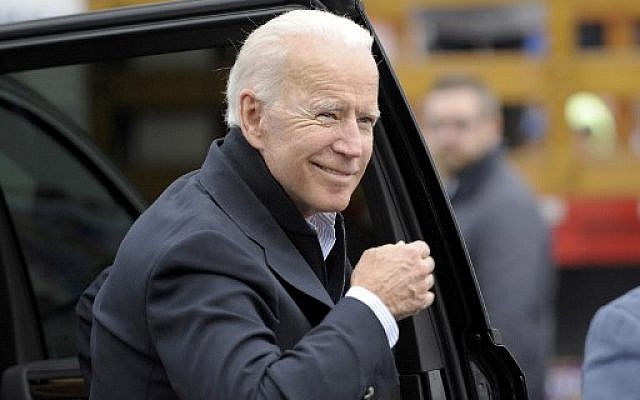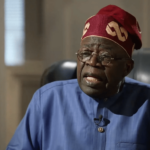By Zainab Usman
In US policy circles, Africa is generally viewed as a backwater, peripheral to US economic and security priorities. That status is reflected in U.S. diplomacy. The last visit by a US president to an African country was then President Barack Obama’s trip to Ethiopia in 2015. Contrast this with President Joe Biden’s trips to Europe, Asia, and the Middle East just during the first year of his administration.
But now that the Chinese government has dramatically enlarged its footprint in Africa, Washington policymakers are paying attention. Trade between China and African countries reached a historic high of $254 billion in 2021. In comparison, trade between the United States and African countries declined from a peak of $142 billion in 2008 to just $64 billion in 2021, and it now accounts for a mere 1.1 per cent of US global commerce. The Chinese government, moreover, has numerous energy, rail, and port projects across the continent. It has also donated vaccines and hazmat suits to help countries in the region combat the COVID-19 pandemic.
Buhari congratulates new Methodist Prelate, Oliver Aba
Blood services: FG gives unregistered health facilities 30-day ultimatum
In part to counter China’s growing influence, the Biden administration has just unveiled a new “21st Century US-African Partnership.” Biden’s strategy supports a just energy transition and the region’s post-pandemic economic recovery. It also emphasises the importance of strong democratic institutions and transparent governance. To truly forge new partnerships with Africa, however, the United States should place economic diplomacy at the core of its engagement. This approach should draw on America’s unparalleled strengths in advanced technologies and private capital while streamlining the US visa system to allow for more business-to-business ties between the United States and the continent.
An agenda of this sort would shore up African economies and offer long-term benefits to the United States. Africa’s population is younger and growing faster than that of any other continent—the median age is 19. In fact, it’s expected that more than two billion people will reside on the continent by 2050. By the end of the century, rapidly growing African cities will constitute 13 of the world’s 20 biggest urban areas. The region’s latent growth potential is enormous. Companies that invest in Africa—and countries that exercise patience in addressing governance challenges on the continent—will gain access to new markets and build political influence.
Leveraging America’s strengths
To be sure, those expressing doubts about Africa’s growth prospects can point to some dispiriting statistics. According to the World Bank, 48 countries in sub-Saharan Africa could be home to 90 per cent of the world’s poor by 2030. Twenty of the world’s 38 countries in fragile and conflict-affected situations are on the continent; five military coups took place there between 2021 and 2022.
But opportunities for investment exist, and some countries have capitalised on them. Africa’s growing digital economy is powered by Chinese digital infrastructure and mobile phone companies such as Huawei, Transsion, and ZTE. These Chinese companies have become market leaders on the continent in large part because, in the early years of this century, US companies wrote off most Africans as too poor to afford mobile phones.
Similarly, African countries are now forging a variety of economic partnerships with companies and governments in places such as India, Russia, Turkey, and the United Arab Emirates. These deepening relationships are shaping the foreign policies of African governments: witness how many countries in the region abstained on the UN resolution issued in March that condemned Russia’s invasion of Ukraine.
Because US policy on Africa is linked to the administration’s effort to curb China’s rise, there will be a strong impetus to match China’s investment in building high-speed railways, airports, and power plants. Indeed, the Partnership for Global Infrastructure Investments launched at the 2022 G-7 summit to counter China’s Belt and Road Initiative was pitched as a way to launch energy, health, and digital projects. Yet similar infrastructure investments would not be the best use of US public resources because those initiatives play to Beijing’s strengths. Instead, Washington should build on the United States’ strengths in advanced technologies and private capital, thereby aligning U.S. interests with the economic development needs of African countries.
US pharmaceutical companies are global leaders compared with similar entities in rival countries such as China. With guarantees from public agencies such as the US International Development Finance Corporation, the Export-Import Bank of the United States, and the United States Trade and Development Agency, American companies can invest in building out supply chains to produce medicines, medical equipment, and vaccines in African countries. Such investments would help strengthen vulnerable supply chains for medical products in Africa, improve the ability of local pharmaceutical industries to comply with international quality standards, create jobs, and reduce the United States’ reliance on Chinese supplies. The US government can also support human capital development in African countries through exchange programmes for medical professionals.
Another comparative advantage of the US government is its ability to provide financing, unilaterally and via multilateral institutions such as the World Bank, at below-market rates. African countries are advocating for reforming global finance to make it more equitable; the United States can win more friends on the continent by backing this cause. It was, after all, the absence of Western financing for infrastructure in recent decades that prompted African countries to turn to Chinese banks. Now that African states need to invest around $50 billion per year in climate adaptation, the United States should seize the moment and push multilateral development banks and European allies to provide low-rate financing.
This initiative would align well with the needs of most African countries. The region needs jobs for the more than 11 million young people joining the labour market each year. Precedents for successful US private-sector investment in developing countries include places such as Singapore, South Korea, and Taiwan, which were lifted into prosperity through such investments and remain reliable US allies.
Continued on www.dailytrust.com
ZAINAB USMAN is a senior fellow and director of the Africa Program at the Carnegie Endowment for International Peace in Washington, D.C.
The piece was first published in Foreign Affairs

 Join Daily Trust WhatsApp Community For Quick Access To News and Happenings Around You.
Join Daily Trust WhatsApp Community For Quick Access To News and Happenings Around You.


